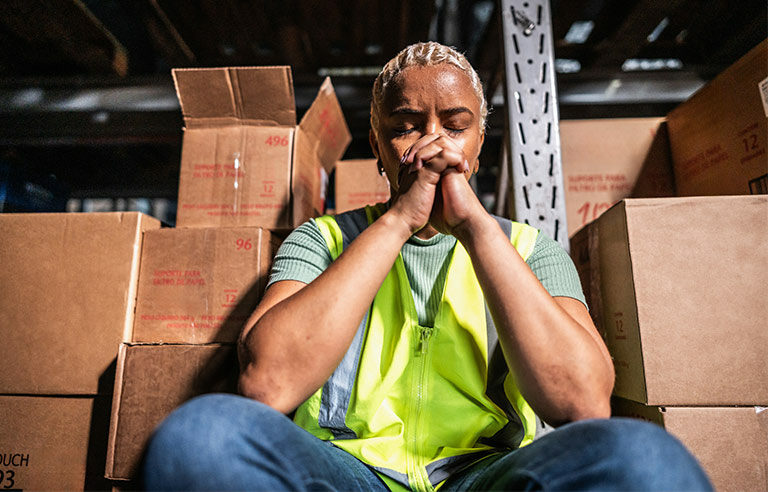
Los Angeles — Social anxiety and depression “may serve as a barrier to seeking or maintaining employment,” according to a recent study out of the University of California, Los Angeles.
Researchers analyzed data from 250 adults with social anxiety disorder who were enrolled in job-placement services. They found that “when people reported higher levels of social anxiety or depression at one time point, then they tended to report lower hours worked at the next time point,” corresponding study author Olivia Losiewicz, a UCLA graduate student in clinical psychology, told Safety+Health.
She added: “It’s somewhat intuitive, right, that if you’re having higher anxiety or more depression, it’s interfering with your ability or your access to work.”
Losiewicz said she and her fellow researchers aim to further examine the relationship between negative mental health outcomes and their influence on work.
“The takeaway,” she said, “is to note that mental health can really impact somebody’s abilities and opportunities to work. I think as an employer, if there are ways to be proactive about trying to help bolster employees’ mental health – whether that be being flexible about therapy appointments or really paying attention to what kind of mental health coverage is included in insurance, or just doing things to try to improve the workplace environment to improve employee mental health – I think that’s really important for people’s productivity and ability to work.”
One study limitation Losiewicz noted was being unaware of certain factors such as whether prospective workers lost work opportunities based on a previous, unsatisfactory performance review.
The study was published in the journal Psychiatric Research and Clinical Practice.
McCraren Compliance offers many opportunities in safety training to help circumvent accidents. Please take a moment to visit our calendar of classes to see what we can do to help your safety measures from training to consulting.
Original article published by Safety+Health an NSC publication